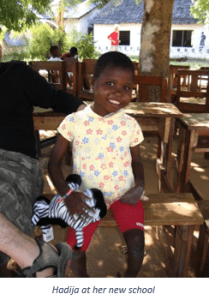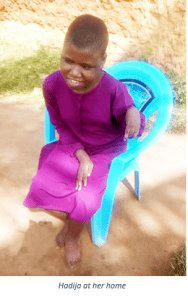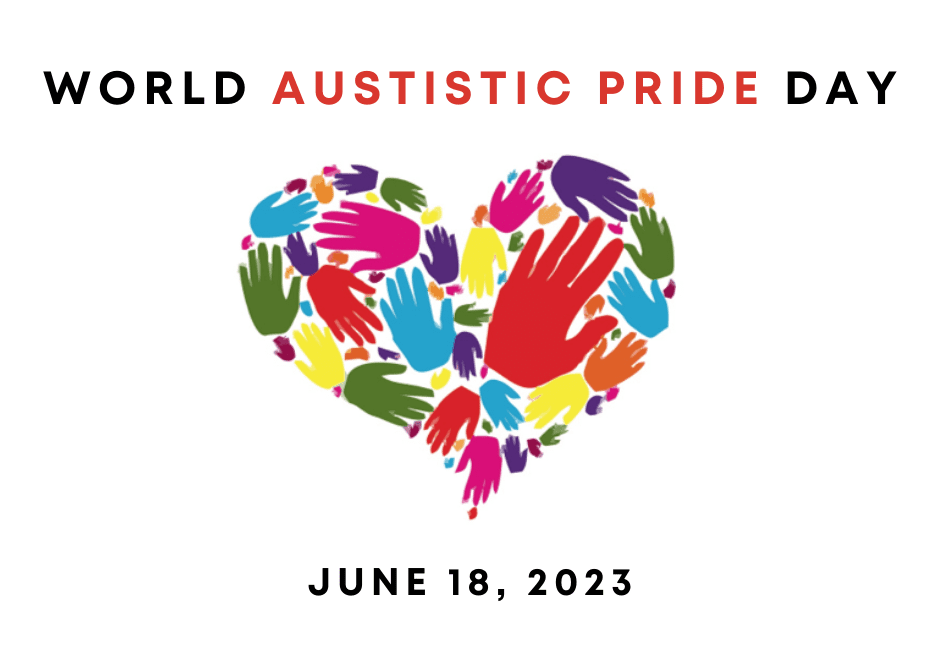World Autistic Pride Day: Hadija’s Story
by Lauren Blair
Posted on June 16, 2023
Beliefs, Child, disability, education, Health, International, marginalized, stigma, vulnerable
Awareness Days / Child Success Stories / Disability Advocacy
Throughout Kupenda’s work, we often find that the greatest challenges people with disabilities encounter are not in their physical or mental conditions but in the perceptions of those around them. This is frequently the case for people with autism spectrum disorder. That is why, on June 18th, we celebrate World Autistic Pride Day.
According to the Centers for Disease Control and Prevention, autism spectrum disorder is “a developmental disability caused by differences in the brain.” At times, this may contribute to differences in social communication, repetitive behaviors, and different ways of learning, moving, or paying attention.
Yet these aspects often garner more attention than a range of positive traits associated with autism, such as learning to read at an early age, memorizing and learning information quickly, thinking in a visual way, having a good memory, being precise and detail oriented, being dependable, having an excellent sense of direction, employing alternative problem solving solutions, and striving for perfection.
As we join with people worldwide, we hope to raise awareness that people with autism spectrum disorder are not people to focus on “changing,” but people to be celebrated according to their own unique gifts.

Abandonment and Isolation
As a child, Hadija experienced negative stigma associated with her autism. Like many people in low-income countries, her community viewed her disability as a curse. As a result, her mother abandoned her to her grandmother and father’s care. Unfortunately, her father had difficulty earning enough from farming to meet the needs of Hadija and her six siblings on one salary.
Since she was unable to speak or move easily, it was challenging for her family to understand her needs As a result, Hadija received little support and spent most of her days sitting alone outside her home.
Rights and Reconnection
When Kupenda’s staff in Kenya met with Hadija, they were able to partner with her and her family to access the support she needed. With a school scholarship and transportation assistance, Hadija began to attend a school that could meet her needs. In addition, her teachers have helped her to learn basic sign language skills and speech facilitation so that she can communicate and interact with others.
 With regular therapy, Hadija can now walk, hold objects and feed herself, use the toilet independently, draw with assistance, and improve the movement in her wrists and feet. Additionally, she receives regular medical checkups, medication for an associated condition, and nutritional support.
With regular therapy, Hadija can now walk, hold objects and feed herself, use the toilet independently, draw with assistance, and improve the movement in her wrists and feet. Additionally, she receives regular medical checkups, medication for an associated condition, and nutritional support.
With counseling from Kupenda staff, her family better understands her legal rights, where to access health resources, and how to better care for a family member with a disability.
Furthermore, the family has received increased support from their community after Kupenda held a Disability Awareness Day in their village, trained community leaders, and created parent support groups in the area.
Today, Hadija is a young woman and her family and community understand that they have a responsibility towards one another as well as a gift. When others visit Hadija, she greets them with a smile because she is accepted in her own unique way as an important part of community life.
According to Joseph Redford, an organizer for Autistic Pride at London’s Hyde Park,
“Demanding to be treated with the same respect and dignity as others is Autistic Pride in action.”
Thank you for putting autistic pride in action in your support of children with disabilities like Hadija!




Leave a Reply